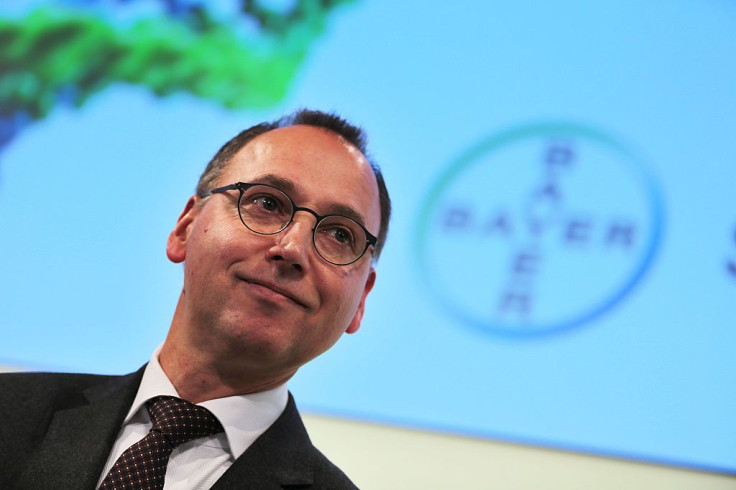Bayer To Consider Selling Animal Health If Unable To Bulk Up: CEO

Bayer might look into selling its animal health division if it continues to struggle to find takeover targets for the business, the German drugmaker's incoming chief executive said.
"Animal Health is a business that we have been trying for many years to strengthen strategically, that is to say inorganically. That is still our goal," strategy chief Werner Baumann, who is to take over as CEO on May 1, said at a media briefing late on Monday.
"Should we not succeed at that in the end, we will have to ask the strategic question, as is the case with all our businesses, are these businesses well placed with us as best owner or can these businesses perhaps progress better in a different environment, with different access to resources ?"
He declined to say for how much longer Bayer would continue to scout for takeover targets for the veterinary drugs unit, which saw revenue increase 13 percent to 1.5 billion euros ($1.7 billion) last year, or 4.5 percent when adjusted for currency swings.
Baumann added that there had been a dearth of targets in the past because tie-ups in animal health had typically taken place as part of larger deals in healthcare.
In animal health Bayer is set to become a second-tier player behind four clear market leaders following a series of major consolidation moves in the sector, capped by exclusive talks unveiled in December between Sanofi and Boehringer Ingelheim to combine some businesses.
Apart from Bayer, pharma majors such as Eli Lilly and Merck & Co run animal health operations, applying some remedies originally developed for humans.
Baumann added Bayer was under no pressure to act because the animal health industry was very attractive and Bayer had a strong product line-up and development pipeline, citing as examples its flea and tick collars for dogs and work on developing drugs to boost farm animals' immune system.
He said the business had a core profit margin of over 20 percent last year and expected sales to rise in line with market growth of about 5 percent in 2016.
Speaking about the group as a whole, which makes prescription drugs, consumer care products, crop chemicals and seeds, Baumann said he should not be expected to change the overall strategic course set by outgoing CEO Marijn Dekkers.
(Editing by Maria Sheahan, Greg Mahlich)
Published by Medicaldaily.com



























